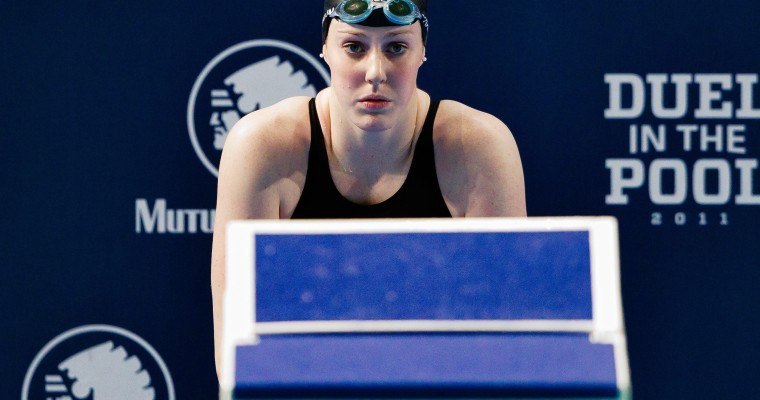Olivier Poirier-Leroy is a former national level swimmer based out of Victoria, BC. In feeding his passion for swimming, he has developed YourSwimBook, a powerful log book and goal setting guide made specifically for swimmers. Sign up for the YourSwimBook newsletter (free) and get weekly motivational tips by clicking here.
Our habits, good and bad, make up our swimming. They drive the way that we perform in the water, how we train, even how we fare in competition. The way you catch the water (elbow up?), how many dolphin kicks you take off the walls, picking your head up at the finish. These are all training habits.
We like to imagine that our practice habits live in isolation of our competitive habits, but they don’t. If you consistently drop your elbow or bury your head in practice when you get tired, you are sure to replicate the same thing when you get tired within a race.
Inch by inch, habit by habit, elevate your game and your swimming. Here are 5 daily habits you can apply to your swimming to get you going just a wee bit faster:
1. Set daily goals. Nothing will make your mind wander quicker than swimming without purpose. Having clear, tangible purpose when you are in the water, as opposed to swimming mindless, absent minded yardage, keeps you focused. Give your swimming clarity of purpose on a daily basis.
2. Keep good technique during the low quality work. After a long, challenging swim workout when the prescribed warm-down finally comes along most swimmers will allow their technique to fall apart faster than wet cardboard. At the end of your session, when you are bagged, is the best time to maintain perfect technique, because the exhausted state most resembles the all-out fatigue and burn that floods your body at the end of a race.
3. Do a little bit extra. The easiest way to get typical results is to follow the same, well-worn path that comes before you. To step above, to rise above the masses and do something exceptional with your swimming requires you to do a little bit more. Each day pick something, and do an extra 10%. Doesn’t have to be a massive commitment, or an extra full workout. Do this regularly and it will become second nature for you to go above and beyond.
4. Make a conscious effort to limit negative thinking. They are almost unavoidable, and often we wake up and it’s the first thing we hear. You don’t deserve it. You won’t succeed. You’re not talented enough. It’s not a coach or parent telling you these things, it’s the voice in the back of your head. Don’t allow this talk to go unnoticed. Make it a habit to acknowledge these thoughts, and to immediately send them packing.
5. Take time to evaluate. Every so often you have that workout. Where everything clicks, you burst through some previously considered unbreakable limits, and walk out the pool a better swimmer than you walked in. Wouldn’t it be nice to figure out why you had that rad practice? Take a little bit of time evaluate your performance that day, and try to detect the patterns and habits (there’s that word again!) that lead to devastating workouts so you can bang them out at will.
About YourSwimBook
 YourSwimBook is a log book and goal setting guide designed specifically for competitive swimmers. It includes a ten month log book, comprehensive goal setting section, monthly evaluations to be filled out with your coach, and more. Learn 8 more reasons why this tool kicks butt.
YourSwimBook is a log book and goal setting guide designed specifically for competitive swimmers. It includes a ten month log book, comprehensive goal setting section, monthly evaluations to be filled out with your coach, and more. Learn 8 more reasons why this tool kicks butt.
Join the YourSwimBook weekly newsletter group and get motivational tips and more straight to your inbox. Sign up for free here.

Thank you so much!!!